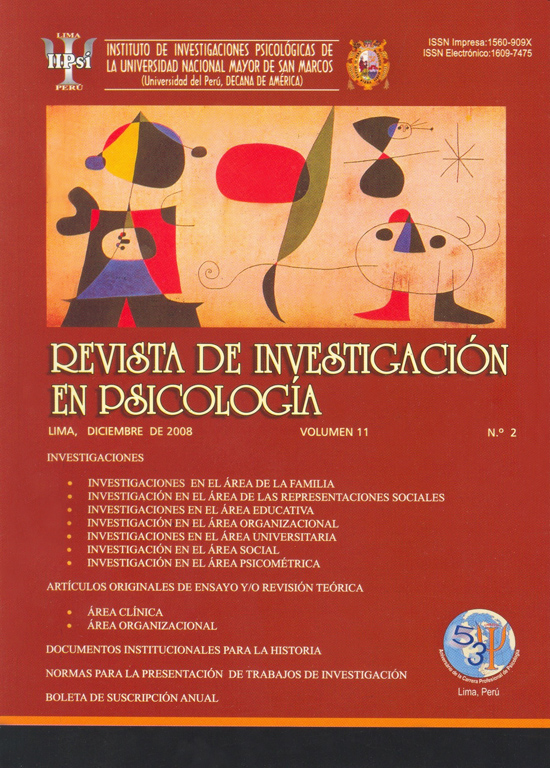Interview in organizations, a psychological perspective for its classification and application
DOI:
https://doi.org/10.15381/rinvp.v11i2.3851Keywords:
interview, situations, problems, globalization and dynamic relationshipAbstract
The interview is seen as a general theme in the broad spectrum of the professional activity of the sciences and humanities, and the importance being given in the handling or use, method or technique can be as a tool for research scientific, via the communication sciences, law, until the fields of malaise (illness), or welfare (health) where the psychology, and particularly within the psychology of it as an organizational tool, which for This exploratory research, is treated comparably between their ability based on knowledge of rules and structure, and its dynamics based on the functional purpose of managing the organization to achieve its objectives of growth and development of this analysis results have been systematized that allow to pose a model for a classification and application of the interview in the field of organizations. The structuring of the model sets criteria systematized as an alternative propositions under a systems approach, which helps in coping with the various demands of the twenty-first century, which will be attended by organizations of the era of globalization.Downloads
Published
Issue
Section
License
Copyright (c) 2008 José Luis Perea Rivera

This work is licensed under a Creative Commons Attribution-NonCommercial-ShareAlike 4.0 International License.
THE AUTHORS RETAIN THEIR RIGHTS:
a. The authors retain their trademark and patent rights, and also on any process or procedure described in the article.
b. The authors retain the right to share, copy, distribute, execute and publicly communicate the article published in the Journal of Research in Psychology (for example, place it in an institutional repository or publish it in a book), with acknowledgment of its initial publication in the Journal of Research in Psychology.
c. Authors retain the right to make a subsequent publication of their work, to use the article or any part of it (for example: a compilation of their work, lecture notes, thesis, or for a book), provided that they indicate the source. of publication (authors of the work, magazine, volume, number and date).






